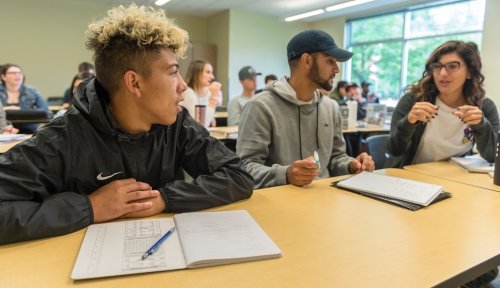The Center for Student Learning, Writing and Advising provides peer tutoring, peer reading, advising and academic support to all students.
Office of Public Safety | Assists with navigating campus and helps with transportation for students with mobility limitations
Counseling and Wellness Center | Provides counseling services for students
Office of Housing and Residence Life | Assists with any housing questions and needs; can offer information on ADA accessible rooms and works with the DSS Office regarding housing accommodations
Student Health Center | Can be a resource for medical care and may be able to fill some prescriptions
Food services | Can provide information about food on campus for persons with food allergy and other dietary restrictions
Registrar | Can help students who may need to leave the University for Medical Reasons
Emergency Medical Conditions: If a student has a medical condition that may need immediate medical response, such as a seizure disorder, you may want to work with the DSS Office even if you are not seeking accommodations. The DSS Office can work with Public Safety, the Health Center and Residence Life to develop a plan to respond effectively to the medical condition
Service animal policy has information on what is a service animal and the expectations of the animal while present on campus.



